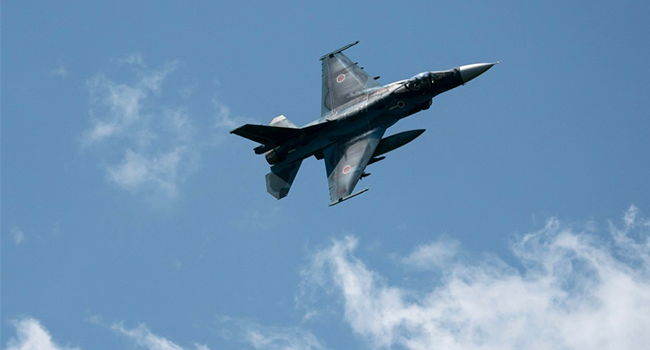
The United States announced Tuesday that it has approved the potential sale of $5.58 billion in F-16 fighter jets to the Philippines, reinforcing its alliance with Manila amid escalating tensions with China.
The State Department authorized the sale, which includes 20 F-16 jets and related equipment, describing it as a move to strengthen the security of a key regional partner.
“This sale will enhance the Philippine Air Force’s ability to conduct maritime domain awareness and improve its suppression of enemy air defenses,” the State Department said in a statement. The deal is also expected to bolster political stability and economic progress in Southeast Asia.
The decision comes as confrontations between the Philippines and China intensify in the South China Sea. Beijing claims nearly the entire waterway, despite an international ruling dismissing its territorial assertions.
A State Department spokesperson clarified that the deal would be finalized only upon receipt of a signed Letter of Offer and Acceptance from the Philippines. However, Philippine defense department spokesman Arsenio Andolong told AFP that he had not received official notification.
The Philippines has long expressed interest in acquiring F-16s, dating back to the administration of former President Benigno Aquino, which ended in 2016.
Since President Ferdinand Marcos Jr. took office in 2022, Manila has strengthened defense ties with Washington, pushing back against Beijing’s maritime claims. In December, the Philippines announced plans to acquire the U.S. mid-range Typhon missile system, a move that angered China, which warned it could trigger a regional arms race.
The arms sale approval comes amid heightened geopolitical tensions in the region. On Tuesday, as Chinese warplanes and naval vessels surrounded Taiwan in a simulated blockade, Philippines military chief General Romeo Brawner said his country would “inevitably” be drawn into a conflict if Taiwan were invaded.
“Start planning for actions in case there is an invasion of Taiwan,” Brawner told troops in northern Luzon, the Philippine region closest to Taiwan. “If something happens to Taiwan, inevitably we will be involved.”
He also noted that this month’s joint U.S.-Philippine Balikatan (shoulder-to-shoulder) military exercises would be concentrated in northern Luzon, an area perceived as a potential conflict zone.
During a recent visit to Manila, U.S. Defense Secretary Pete Hegseth pledged to strengthen deterrence in the Indo-Pacific in response to growing threats from China. Secretary of State Marco Rubio also reaffirmed Washington’s commitment to defending the Philippines, marking a shift from the Trump administration’s previous concerns about allies “freeloading” on U.S. defense support.
